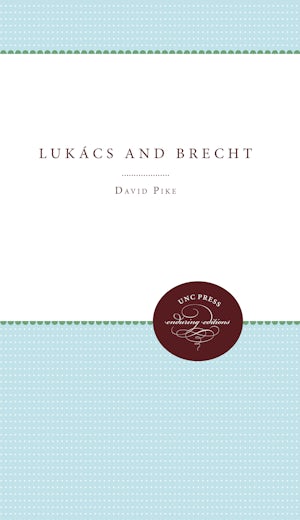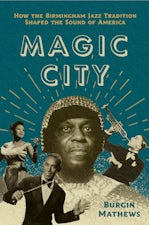Lukács and Brecht
By David Pike

360 pp., 5.25 x 9
-
Paperback ISBN: 978-0-8078-6581-1
Published: January 2011
Buy this Book
Awards & distinctions
1990 Leipzig Award for Design, International Book Exhibition
The link between the two men lies in their practice of viewing reality through the prism of a rigid political dogma. This persistent inclination led to theorietical rationalizations that were incapable of acknowledging the evolving pattern of Stalinist atrocities or that classified these atrocities as historical necessity, and it likewise distorted each man's view of fascism.
An additional dimension to this fascination with an exclusive political dogma is that Brecht's tendency to indulge in the Stalinist mystique was not tempered in the least by his Western European or American experience. In fact, his perceptions of Western democracy only drove him further away from any acceptance or appreciation of traditional democratic values. Lukács, by contrast, chose Soviet exile. There he had little chance to pursue insights into political or aesthetic theory which were meaningfully independent of the dogmas emerging around him. Ironically, Lukács drifted so far in the opposite direction that he helped work out doctrinal ideas characteristic of fully developed Stalinism.
Pike examines another set of parallels and divergences in the realm of aesthetic theory. Whereas Lukács literary ideas were never incompatible with the political dogma of Stalinism, the political orthodoxy that Brecht shared with Lukács contributed to an entirely different aesthetic theory and literary practice, one differing radically from Lukács' views and from the socialist realism of the Soviet cultural establishment.
Originally published in 1985.
A UNC Press Enduring Edition -- UNC Press Enduring Editions use the latest in digital technology to make available again books from our distinguished backlist that were previously out of print. These editions are published unaltered from the original, and are presented in affordable paperback formats, bringing readers both historical and cultural value.



